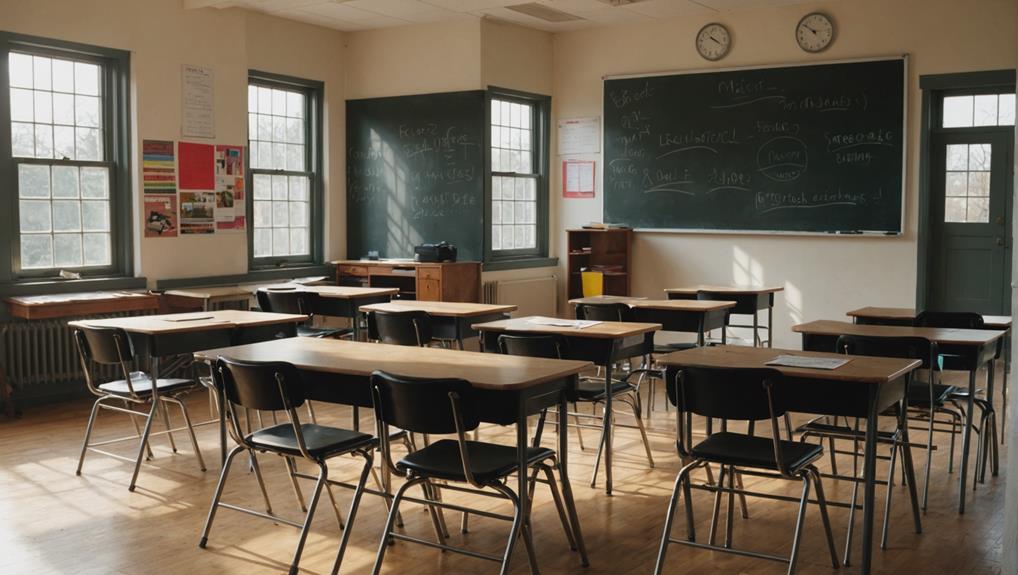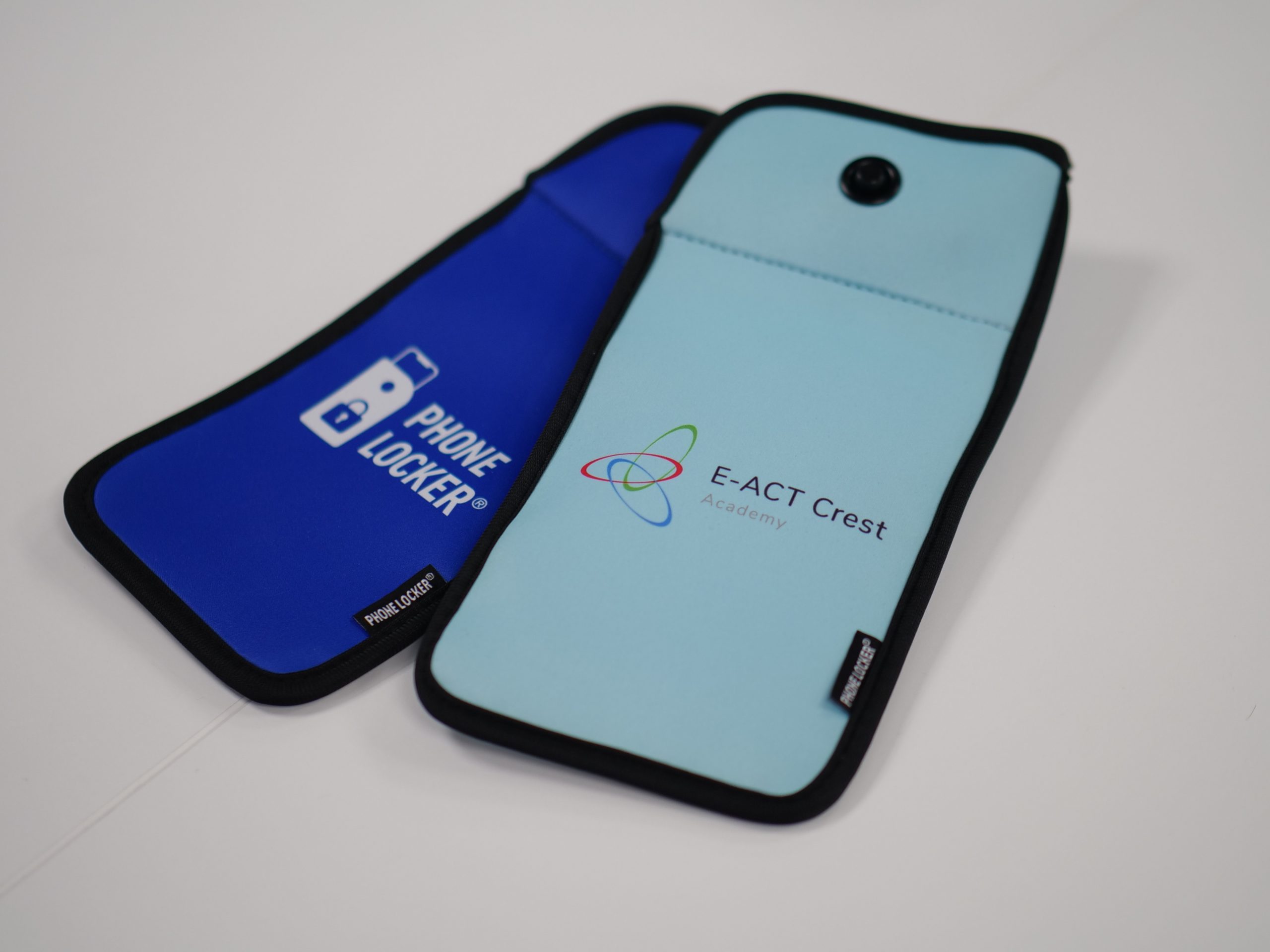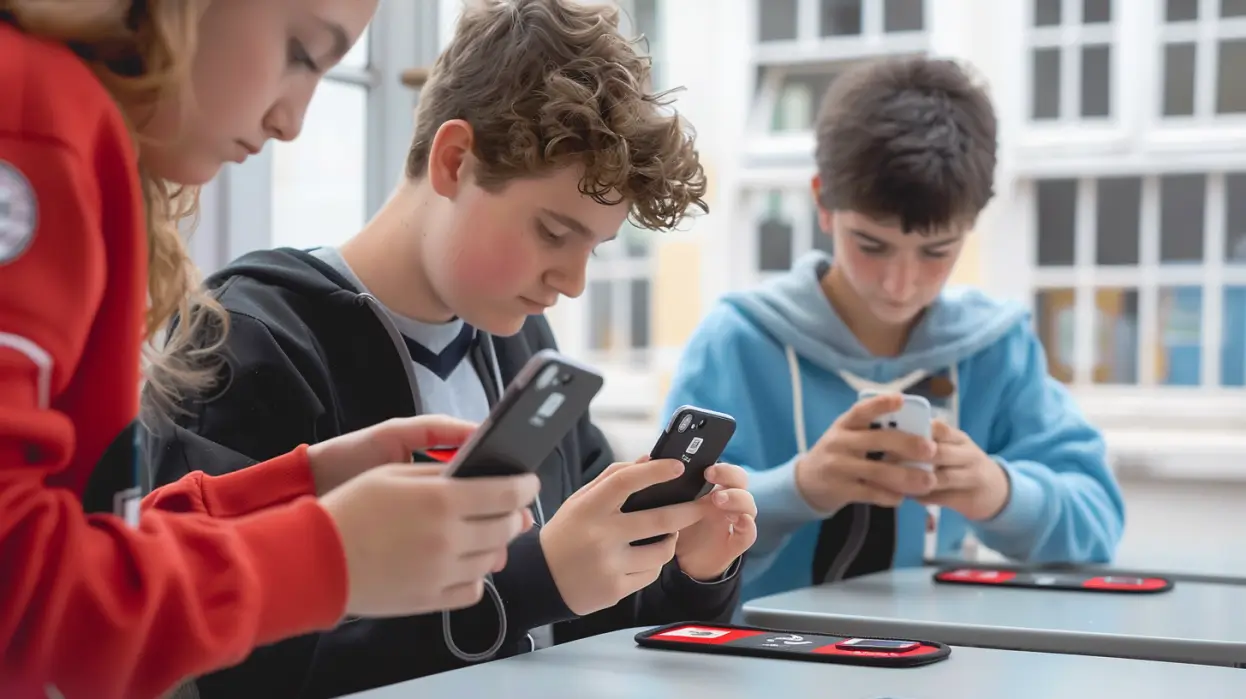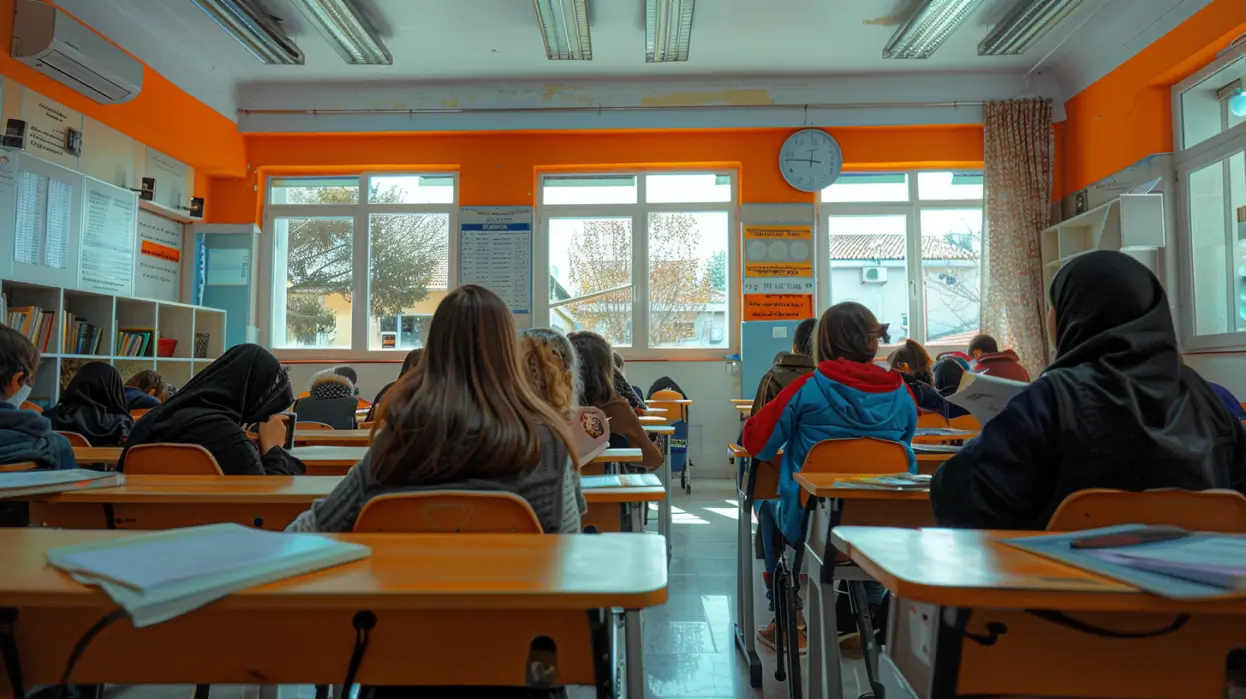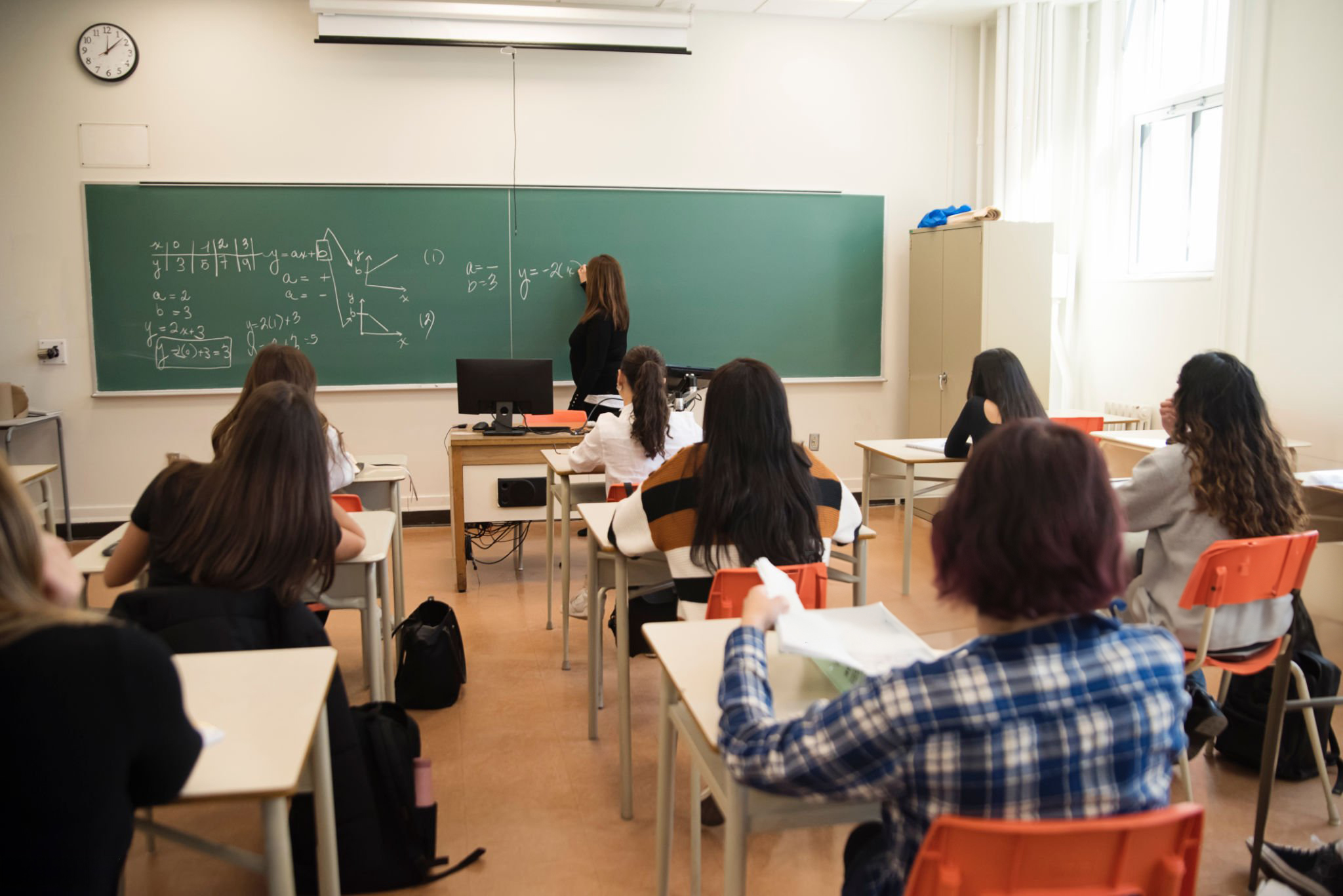Cyprus Plans to Ban Mobile Phones in Schools
The Cyprus government is considering banning mobile phones in schools to combat classroom distractions and declining educational outcomes. Aligning with Unesco’s recommendations, proponents such as the OELMEK Teachers’ Union argue that the ban would enhance focus and reduce cyberbullying, mirroring successful bans in countries like France and Australia. However, opponents, including the Commissioner for Children’s Rights, emphasize the importance of digital literacy and communication, voicing concerns about student safety and interaction. The ongoing global trend of school phone bans highlights potential benefits but also sparks debates about implementation and student development. Explore further implications on educational settings.
Key Takeaways
- Cyprus considers a mobile phone ban in schools to reduce distractions and improve academic performance.
- The proposed ban is supported by teachers, principals, and the OELMEK Teachers’ Union.
- Concerns include cyberbullying, focus, and aligning with European educational norms.
- Opponents argue for digital literacy education and highlight potential impacts on communication and relationships.
- Global examples, like France and Australia, show improved focus and decreased disruptions post-ban.
Cyprus to Ban Phones in Schools
The recent decision by Cyprus’s cabinet to ban mobile phone use in high schools marks a major step toward reducing distractions in the classroom. This policy, still awaiting approval from the House of Representatives, is designed to address the growing concerns of educators and parents about the impact of phones on students’ academic performance.
The ban covers all school hours, including breaks, which are traditionally seen as personal time for students. While exceptions may be made for medical or emergency situations, the main goal is to limit distractions and help students stay focused on their studies.To address concerns about phone security, some schools will provide lockers or locking phone pouches, such as those offered by PhoneLocker. These pouches securely store students’ devices during the school day, allowing them to carry their phones without the temptation to use them.
By using locking pouches, schools can enhance security and keep phones out of sight, creating a more focused learning environment. Additionally, these pouches are designed for convenience, enabling quick access when necessary while minimizing distractions.
The Ministry of Education hopes this move will not only improve academic concentration but also encourage more face-to-face interactions among students, helping them develop important social skills.
The decision has sparked widespread debate among parents, students, and teachers, with many questioning how it will affect daily school life and whether it will truly resolve the issues it aims to address.
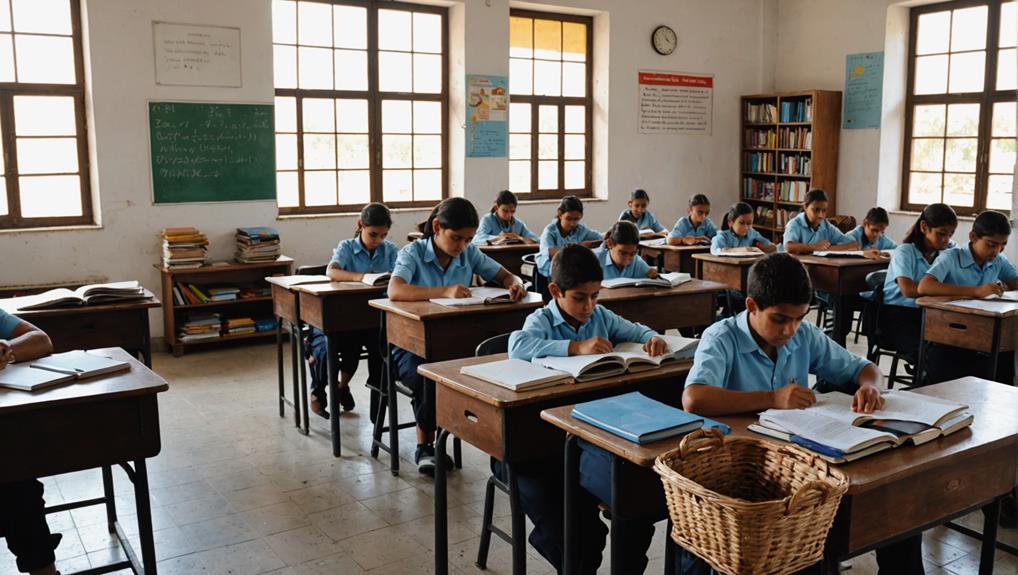
Reasons Behind the Proposed Ban
A multitude of factors have contributed to Cyprus’s decision to propose a ban on mobile phone use in schools. Primarily, the impact on learning is a significant concern, with mobile devices often cited as distractions that detract from students’ focus and academic performance. The correlation between phone usage and diminished educational outcomes aligns with the recommendation from Unesco, reflecting a broader consensus across European nations.
Moreover, there is a noted influence on student behavior, as excessive phone use has been linked to antisocial tendencies and delinquency, prompting the need for stricter regulations in educational settings.
Parental concerns also play an essential role in this decision. While some parents advocate for unrestricted access due to safety reasons, others support the ban to foster a more focused learning environment. The potential benefits of this policy include enhanced student concentration, better social interaction during school hours, and reduced instances of cyberbullying.
However, enforcement challenges remain, as schools must develop effective methods to guarantee compliance without imposing excessive burdens on educators. Overall, the proposed ban is seen as a balanced approach to addressing these multifaceted issues while promoting a conducive atmosphere for learning and development.
Support for the Mobile Phone Ban
While concerns about the impact of mobile phones on learning and behavior have driven Cyprus’s proposed ban, substantial support for this measure comes from various educational stakeholders. Teachers, principals, and secondary school directors collectively argue that a ban will lead to improved focus, reduced distractions, and increased engagement in the classroom. The OELMEK Teachers’ Union supports the initiative, highlighting the potential for enhanced learning environments and decreased cyberbullying incidents.
The following table outlines key stakeholder perspectives on the ban:
| Stakeholder | Support for Ban | Concerns |
|---|---|---|
| Teachers & Principals | Improves focus, reduces distractions | Enforcement burden |
| Secondary School Directors | Enhances learning, promotes social development | None noted |
| OELMEK (Teachers’ Union) | Decreases cyberbullying, increases engagement | Monitoring workload |
Supporters assert that removing mobile phones from schools aligns with broader European educational norms and is backed by evidence suggesting that mobile-free environments foster academic improvement. However, OELMEK has raised concerns about the workload implications for teachers, who will need to enforce the ban. Despite these challenges, the overarching consensus is that the ban represents a necessary step towards creating a more conducive learning atmosphere, ultimately benefiting students’ academic and social development.
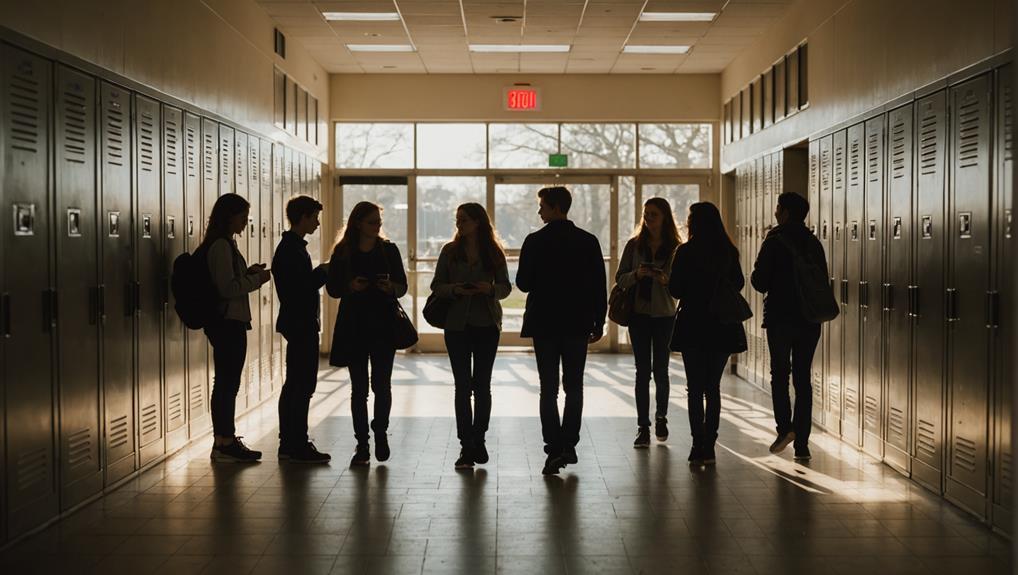
Opposition to the Mobile Phone Ban
Opposition to the mobile phone ban in Cyprus’s secondary schools is fueled by various concerns from key stakeholders.
The Commissioner for Children’s Rights underscores the importance of digital literacy in an increasingly tech-centric world, suggesting that educating students on responsible phone use is more beneficial than an outright ban. This viewpoint emphasizes the significance of equipping students with skills necessary for future innovation and adaptability.
Parents, represented by the Pan-Cypriot Confederation of Secondary School Parents, raise concerns regarding the need for mobile phones to facilitate after-school communication, highlighting potential safety issues. These concerns reflect apprehensions about students’ ability to maintain necessary connectivity with parents and guardians in emergencies, which the ban might compromise.
In addition, the Pan-Cypriot Student Coordination Committee strongly opposes the ban, arguing it could negatively impact student-teacher relationships and limit essential social interaction during breaks. Given the integral role of smartphones in modern social dynamics, students fear the ban might hinder vital peer-to-peer engagement and collaborative learning opportunities.
These opposition views suggest that while the mobile phone ban aims to enhance focus, it may inadvertently overlook critical aspects of education that foster holistic student development, particularly concerning digital literacy and social connectivity.
Mobile Phone Bans Around the World
Mobile phone bans in schools are becoming increasingly common across the globe. Like Cyprus, many nations have introduced bans to reduce distractions and improve student focus.
In France, a national ban on mobile phones for students under 15 was introduced in 2018, aiming to curb distractions, cyberbullying, and over-reliance on screens during school hours. Similarly, Australia has seen multiple states, such as Victoria, implement strict bans on phone use during the entire school day, with exceptions only for medical needs.
In Italy, discussions about phone bans have gained momentum, with some schools independently prohibiting devices to promote better focus. Sweden, while not mandating a national ban, allows schools to impose restrictions, and many have done so to ensure that phones don’t interfere with lessons.
Even in the United Kingdom, where a nationwide policy isn’t yet in place, many schools have voluntarily banned or heavily restricted phones. The debate continues about whether a uniform policy should be adopted across the country.
These global efforts show a shared recognition of the negative effects mobile phones can have on student concentration, behavior, and social interaction. By joining this trend, Cyprus aims to address similar concerns, requiring students to keep their phones turned off during lessons and breaks to foster a more focused learning environment.
While each country’s approach varies, the common thread is clear: schools are increasingly recognizing the need to limit mobile phone use to support both academic success and the overall well-being of students.
Frequently Asked Questions
Investigating the educational implications of banning phones reveals potential accessibility challenges for students with special needs relying on assistive technology. Ensuring impact on learning remains positive necessitates integrating technology with robust support services to enhance accessibility.
The current question addresses potential exceptions for students requiring digital monitoring due to medical conditions. Considerations include privacy concerns, parental consent, data security, accessibility issues, and educational impact to guarantee equitable access to necessary technology.
Ah, the joys of innovation—emergency procedures now include homing pigeons! Realistically, student safety will rely on structured break activities, while digital monitoring guarantees parent communication through supervised channels, balancing the absence of personal devices with pragmatic solutions.
Schools are poised to offer enriching alternatives during breaks, including outdoor games, board games, educational workshops, art activities, and opportunities for social interactions. These initiatives intend to foster creativity, collaboration, and holistic development, enhancing the educational experience.
When enforcing the mobile phone ban, schools must leave no stone unturned. Effective enforcement strategies involve teacher monitoring, fostering student compliance, and enhancing parent communication. This approach minimizes distractions, optimizing the educational impact and fostering an innovative learning environment.
Conclusion
The proposed mobile phone ban in Cyprus’s public secondary schools reflects a strategic effort to enhance educational outcomes by minimizing distractions and fostering a conducive learning environment. While some resistance persists, primarily from students and child rights advocates, the support from educational stakeholders suggests potential benefits. As the saying goes, “the proof of the pudding is in the eating,” indicating that the true impact of this legislation will be measured through its implementation and subsequent evaluation of academic and well-being metrics.


